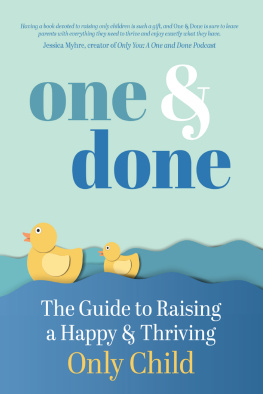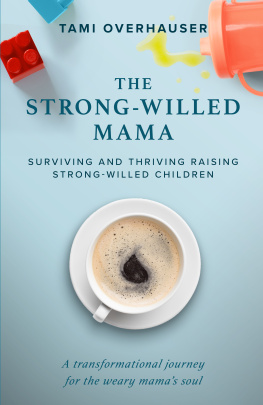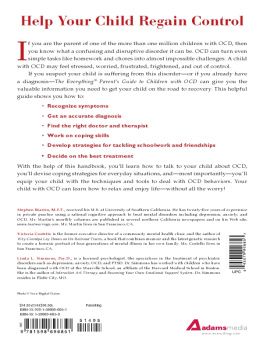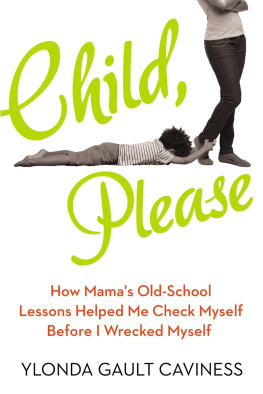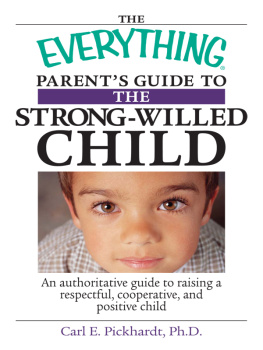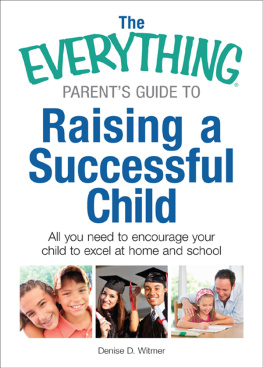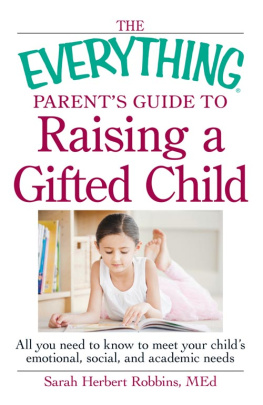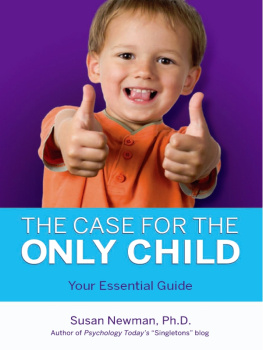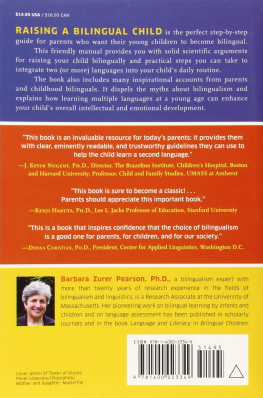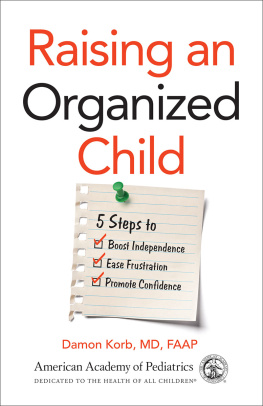one & done

To Alex, my wonderful one and only
Copyright 2023 by Rebecca Greene
All rights reserved.
Published by Familius LLC, www.familius.com.
PO Box 1249, Reedley, CA 93654
Familius books are available at special discounts for bulk purchases, whether for sales promotions or for family or corporate use. For more information, contact Familius Sales at orders@familius.com.
Reproduction of this book in any manner, in whole or in part, without written permission of the publisher is prohibited.
Library of Congress Control Number: 2022942635
Print ISBN 978-1-64170-744-2
Ebook ISBN 978-1-64170-832-6
Printed in the United States of America
Edited by Laurie Duersch, Peg Sandkam, and Shaelyn Topolovec
Cover and book design by Brooke Jorden
10 9 8 7 6 5 4 3 2 1
First Edition
Foreword by Jessica Myhre
Will my child be spoiled if he doesnt have a sibling?
Am I going to regret not having more children someday?
Everyone says my only child will be lonely.
This isnt -what I thought my family would look like.
T hese are concerns I hear each and every day from parents who, whether by choice or by circumstance, have one child. They were also some of my first thoughts when I considered stopping at one child after my own daughter was born. The rampant stereotypes about only children and the lack of support for parents were my reasons for creating a podcast called Only You: A One and Done Podcast. When I learned about this book, One & Done, I knew it would be an incredible resource for so many, including myself.
I am one of five children, and I dreamed of having a large family for most of my life. When it was my time to try for a baby, pregnancy came quickly and easily, and was (for the most part) uneventful. I assumed I would be doing it several more times in my life and tried to rise above the intense anxiety and discomfort it brought me. When I was suddenly diagnosed with severe preeclampsia at thirty-five weeks and wound up with a premature baby in the NICU, almost immediately I started revisiting the expectations I put on myself. Why, exactly, did I assume becoming a parent meant I had to have more than one child?
It was then that I began searching for support. I read any article I could find on single child families, listened to parenting podcasts, and asked friends for advice. For the most part, people told me not to have an only child. They would lecture me with anecdotes about spoiled children who couldnt share and the lonely fate of a child without siblings. I was told I would change my mind and that I was too young and too early in my motherhood journey to be thinking about being done.
Research, on the other hand, did not support these negative biases. Every study I found disproved the stereotypes I was hearing, and I started wondering why they are so enduring. When I spoke to only child adults, I heard the kinds of stories you would expect to hear from any persons childhood. Some parts were great, others were hard. And in the end, it had very little to do with how many siblings they had and a lot more to do with how involved their parents were. Lonely children are unfortunately a consequence of a lack of emotional support from their parents. While siblings can help bridge that gap, its the parents jobnot a siblingsto meet their childs emotional needs.
For the most part, the people I talked to who grew up without siblings were very happy with their lives and had great relationships with their parents. The more I learned, the better I felt about having one child. Coming from a large family, it actually began to sound quite nice. We would have more resources and time for our daughter, I wouldnt have to go through pregnancy or childbirth again, and I had time and space to heal from the trauma it caused me. I could once again focus on my career, my marriage, and my life.
Despite all of this, I still needed to find a community. As a new mother, I was scouring every corner of the internet for advice on this topic, but there was a complete lack of discourse on being one and done. I found that mom groups werent as accepting of only-child parents. It felt inappropriate to talk to other moms about how complete my family felt with just one kid. Every conversation felt like a defense, and the ups and downs of parenting one child were considered insignificant in comparison to those with multiple children. Every so often an adult who grew up as an only child would chime in, but even their positive experiences would be met with rebuttals and horror stories.
By the time my daughter turned six months old, I was finally coming out of my postpartum fog and socializing with friends and family again. That fleeting moment of personal freedom was cut short when the COVID-19 pandemic disrupted my plans, and our fate as a one child family was sealed. Through quarantine, isolation, unemployment, and the constant triggers of medical trauma from our NICU days, I knew in my heart I couldnt have another child.
I created my Only You podcast because I felt there was a great need of support for parents of one child. The show gained traction more quickly than we ever imagined! Hundreds of parents reached out to me and told their stories of birth trauma, infertility, adoption, postpartum depression and anxiety, and so many other components that led them to being one and done. Others reached out to tell me about all the amazing aspects of having one, how it had always been their dream, and how they dont understand why they are criticized for that choice. While I am happy to lead this conversation and hold emotional space for parents, there is still a great need for literature on the subject.
I hope this book finds you when you need it, and that it helps you feel heard and understood for the unique set of circumstances that come along with having one child. One of the reasons I advocate so strongly for parents of one is that we can never truly know how each family came to be. So many parents out there are suffering in silence, feeling isolated, and wishing their family could look like the ones they see around them. For every proud and confident only child parent, there is one who is aching for a second child they may never have. We have to do better for parents.
One of the first steps in doing so is to give them the tools they need to be successful, no matter what their family looks like. Having a book devoted to raising only children is such a gift, and One & Done is sure to leave parents with everything they need to thrive and to enjoy exactly what they have. I know this book is the kind of resource I have really needed during my parenting journey.
Jessica Myhre
Creator of Only You: A One and Done Podcast
Introduction
One and done.
Only-child family.
Single child family.
Triangle family.
T here are many ways to describe a family with an only child. Most likely, you picked up this book because you are a family with one child, you have decided to remain one and done, and youre interested in learning more about how to best raise an only child in todays parenting landscape. You may be eager to discover parenting tips and suggestions specific to only children but have struggled to find books or online resources specifically tailored to an only-child family. If so, look no furtheryou have come to the right place!
One & Done is written for parents, grandparents, mental health professionals, educators, and anyone else who wants to help only-child families thrive. In these pages, you will find practical parenting information and advice, interviews with mental health professionals, and helpful statistics and conclusions from relevant research studies.
Next page
